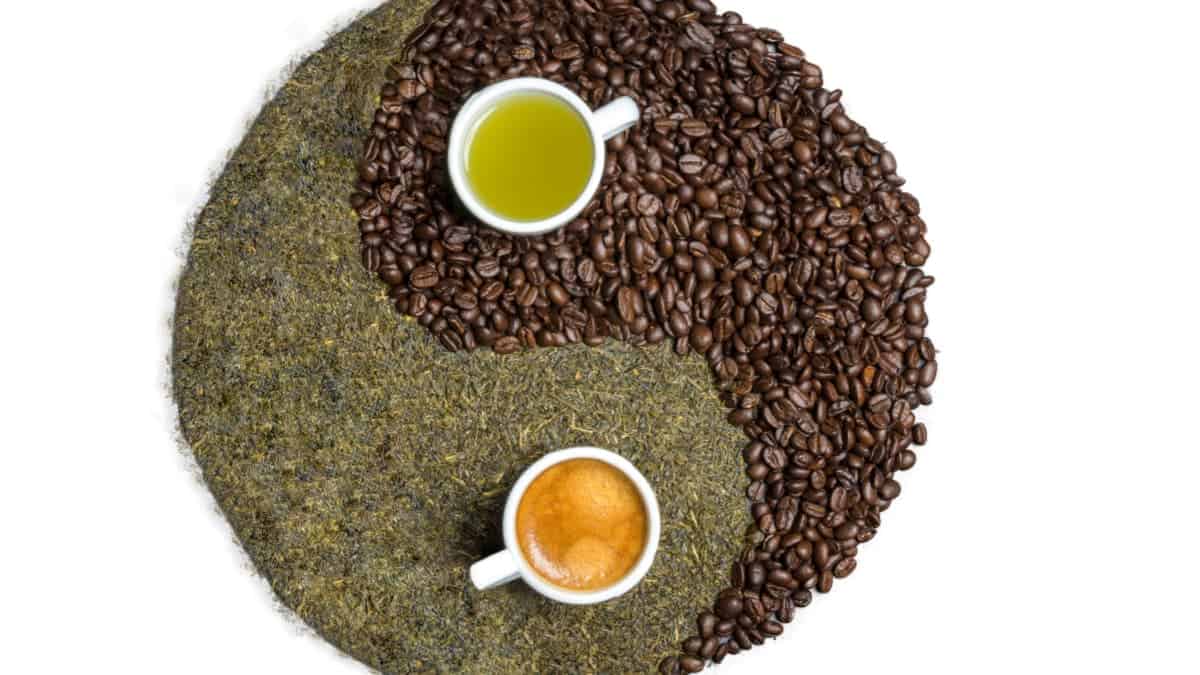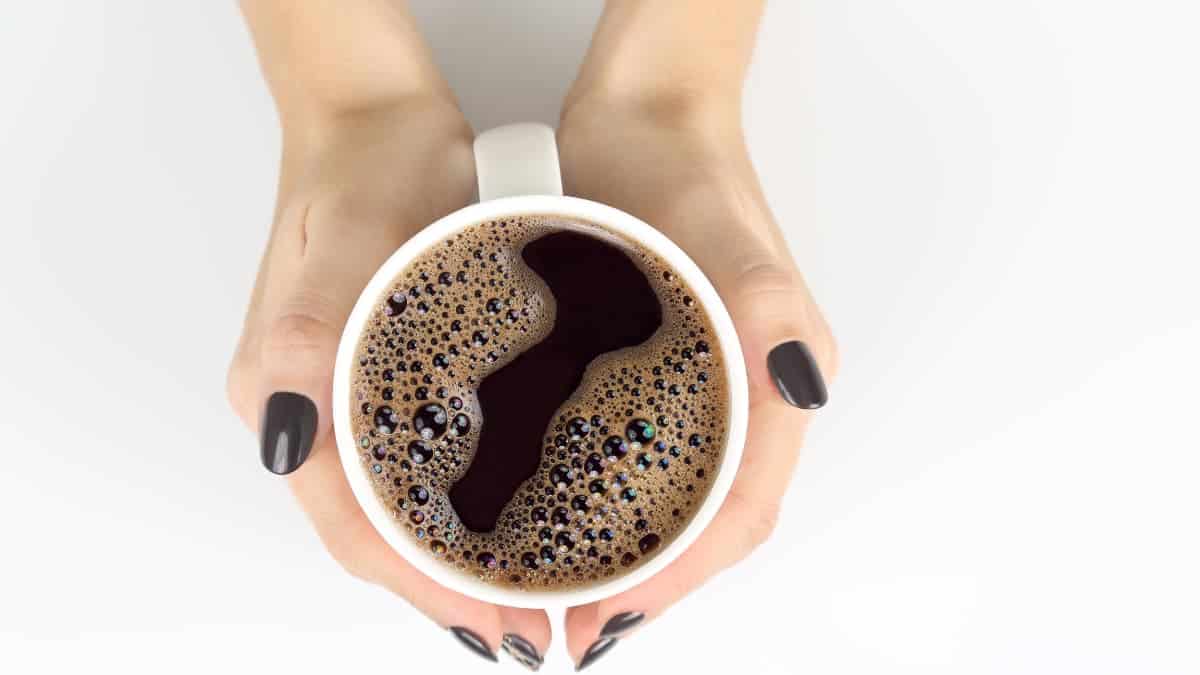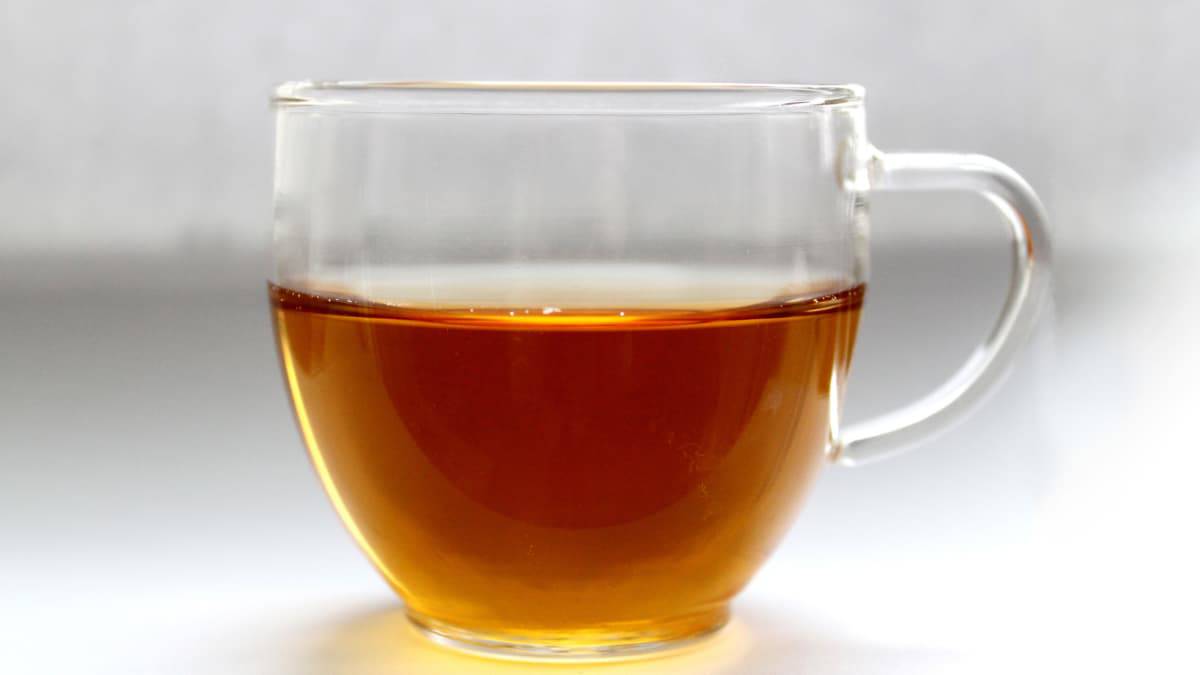Black Tea VS Coffee Compared: Caffeine Content, Flavor & More
Black tea and coffee, two of the most popular caffeinated beverages, contain different amounts of caffeine.
If you’re looking to avoid caffeine, you might wonder if black tea is a way to nix the stimulant.
Let’s take a look at which has more caffeine, black tea vs coffee, and if decaf is the right choice for you.

What is Caffeine?
Caffeine is a natural stimulant that occurs in many plants. Water, especially hot water, extracts caffeine from coffee beans or tea leaves.
This stimulant affects the nervous system in both positive and negative ways. For coffee and tea lovers, the most positive effect of caffeination is that you feel alert and awake.
What about the negative effects of drinking caffeinated beverages? This stimulant can increase heart rate, act as a diuretic, and cause insomnia. (It also can taste bitter.)
That’s why doctors put a limit on the amount you should consume daily. According to the FDA, healthy adults should limit caffeine intake to 400 mg per day. In other words, about 4 cups of coffee or 8 cups of black tea.
You don’t feel the effects of caffeine right away, as it can take an hour or two to act on the body. How long does it stay in your body? The half-life of the stimulant is 5 hours, but you may still feel the effects 10 hours later!
That’s why it can be tricky to know how many caffeinated drinks you should consume and how they will affect you.
Let’s take a closer look at the caffeine in tea and coffee. That way you’ll get a better idea of how to manage your personal limits.
Caffeine Content in Coffee
Just how caffeinated is black coffee? The caffeine levels in coffee vary depending on several factors. The bean varietal, origin, process method, and roasting profile impact coffee caffeination.
Coffee lovers might not have much control over these factors. But you can probably adjust your brew method. And yep, even the brew method impacts how caffeinated coffee is.
Let’s talk about how much caffeine is in an average cup of coffee.
An 8-ounce serving of coffee made in a drip coffee maker can have almost 100 milligrams of caffeine. A shot of espresso, which is just one ounce, has around 30-75 milligrams.
But what about decaf coffee? Does it completely eliminate the stimulant?

Decaf Contains Caffeine Too!
Contrary to common belief, the term decaf coffee doesn’t mean that the beverage is caffeine-free. Even with decaf coffee beans, you’ll still get caffeinated.
The decaffeination process does wash away a lot of the caffeine in coffee beans. But it doesn’t get rid of the stimulant completely.
A serving of decaf coffee may have as little as 3 mg. Maybe that amount of caffeine won’t bother you.
But people who are sensitive to caffeination do have to keep an eye on what they’re consuming. Even when it comes to decaffeinated coffee.
You don’t have to sacrifice taste for a less caffeinated coffee drink. These days there are decaf coffee options that taste great.
But what about black tea? How caffeinated will you get from tea?
Caffeine in Black Tea
Black tea comes from the leaves of the Camellia sinensis plant, which naturally contain caffeine.
The good news for the caffeine-conscious is that black tea has less caffeine than coffee.
When you drink an 8-ounce cup of black tea, you’ll get around 26 mg.
Of course, that amount can vary depending on the tea leaves you use and how strong you brew them. You might find as much as 60 mg in a strong cup of black tea.
And black tea leaves have about double the amount compared to green tea.

Black Tea VS Coffee Caffeine Content
Since both coffee beans and tea leaves contain caffeine, does it matter which you drink? Yes.
When you compare black tea vs coffee, a cup of tea doesn’t have as much caffeine. A cup of coffee packs more caffeine, almost double the amount.
Depending on your health requirements, more of a boost may seem like a positive thing to you. Or it may be something you want to avoid at all costs.
Want to avoid the energy boost completely? Consider drinking herbal tea.
Herbal teas do not contain leaves from the Camellia sinensis plant. These infusions use herbs, spices, or other plant materials that have no stimulants.
Does Decaf Black Tea Exist?
Decaf black tea is a great option when you don’t want the full caffeination in a serving of regular black tea. A 6-ounce cup of black decaf tea contains just 1.8 mg but still has the lovely taste of black tea.
I love to drink a creamy decaf chai drink in the afternoon. It gives me a strong taste without getting so caffeinated that I can’t sleep at night.

